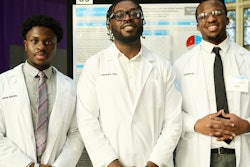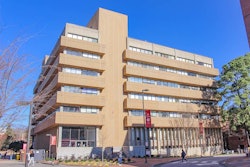Fatima Hassan wasn’t raised in Somalia, since her parents fled during the civil war before she was born, but the Stanford University junior feels duty-bound to improve the plight of African women.
For her work in improving women’s health globally, she is the recipient of the second annual Student Award for the Health and Dignity of Women from the Americans for United Nations Population Fund (UNFPA). The UNFPA is the largest organization in the world which provides health care and education for low-income women across the globe.
“I never really experienced what a lot of Somali women and a lot of Somali families had to face during the civil war. I guess I feel responsible for doing what I can to help other women, and not really take for granted the experiences I had,” says Fatima, who is studying human biology as a pre-med student at Stanford. “I want to be a bridge between the Western world and the places I might come from.”
Fatima’s parents raised her in Saudi Arabia and later immigrated to the United States. She came to Stanford from a small town outside of Houston.
Maintaining a B average, Fatima is committing herself not only to academics but executing her true talents and interests.
“My experience at Stanford isn’t so much shaped by my classes, as it is through these experiences with the Eritrean Women’s Project, and how they have helped me to grow and really help me find my passion,” says Fatima, who aspires to obtain a doctorate.
Finding her passion as an advocate for women’s health, Fatima recently completed her third trip to Eritrea, a small African country bordering the Red Sea. Participating in The Eritrean Women’s Project, founded by Dr. Mary Lake Polan, chair of the department of obstetrics and gynecology at Stanford, Fatima worked with other students, professors, doctors and volunteers providing medical assistance to women.
The basis of the Eritrean Women’s Project is to correct the consequences of obstetric fistula, an injury caused by childbirth due to days of excruciating labor. The results of fistula can be humiliating to a woman, who struggles with chronic incontinence, and devastating, as 90 percent of the infants are stillborn, and the woman is often ostracized from her family. By getting the medical care they need, these women will often be well on their road to recovery, says Fatima.
“One of the most special parts of this last trip was that I got to talk, through one of the nurses, to the patients and just really chill in the ward where they go after surgery and really witness the transformation these women go through if their surgery does heal,” she says, explaining that for some women the healing process is long and many will need more than three trips to the doctor. However, once they recover from the fistula, a brighter future is in store.
Recognized for her participation in the Eritrean Women’s Project, and as the recipient of the Americans for UNFPA Student Award, Fatima will continue her quest for women’s health this summer, as she will travel to Rwanda and Uganda, advocating for women’s medical needs.
“Fatima is an outstanding recipient of the student award because of her commitment to and skill in working with women in Africa to improve their access to prenatal care and pregnancy outcome,” says Lake Polan.
Fatima says her experience with the Eritrean Women’s Project has been a truly humbling experience. She says that as much as she helped these women, witnessing their spirit and desire to move forward, made a significant impact on her.
“In the places where there are no resources, I saw how these women overcome these barriers, working for their survival. I find that very fascinating and very inspiring, that is why I’m interested in women’s health.”
Click here to post and read comments
© Copyright 2005 by DiverseEducation.com


















